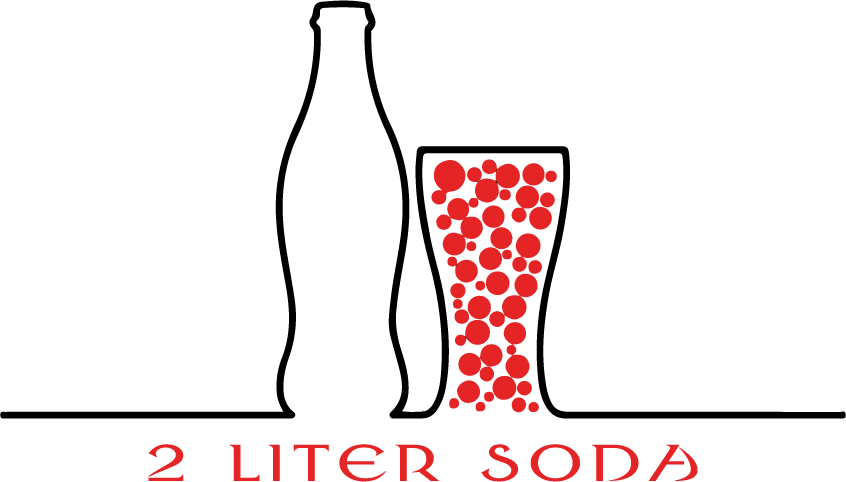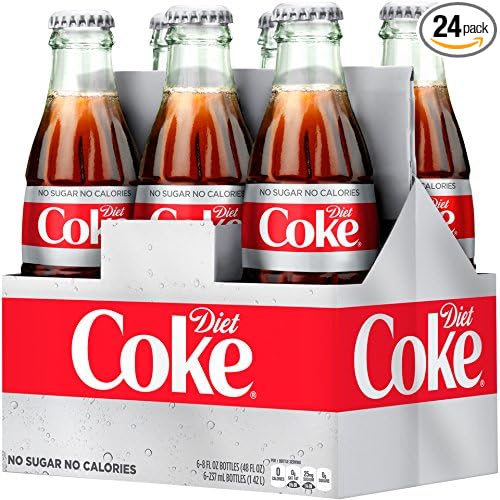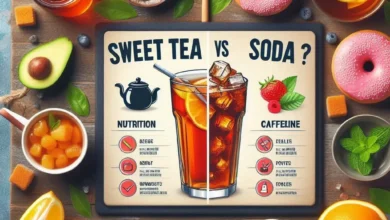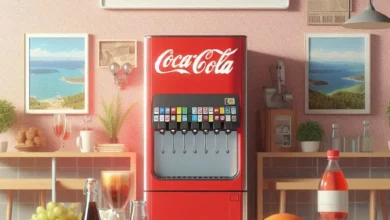Can You Drink Diet Soda While Fasting?
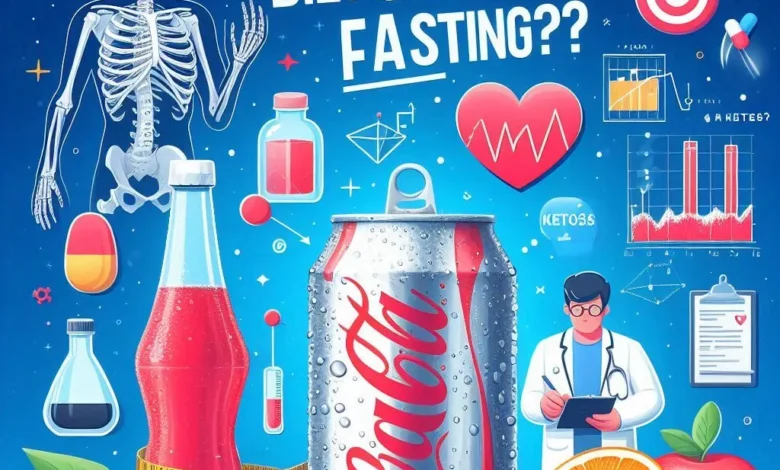
1. Introduction
Fasting has become a popular method for weight management, detoxification, and even religious practices. But with its growing popularity, there’s been a surge in questions about what breaks fast and what doesn’t.
One of the most debated topics is whether diet soda can be consumed while fasting. Diet soda is marketed as a zero-calorie alternative to regular soda, but does that mean it’s suitable for fasting?
This article will explore the relationship between diet soda and fasting, discussing its impact on insulin levels, metabolism, and overall health.
2. Understanding Can You Drink Diet Soda While Fasting?
Fasting involves abstaining from food and sometimes drink for a set period. It’s practised in various forms across cultures and religions and is also a popular trend in health and wellness circles.
Several types of fasting exist, including intermittent fasting, water fasting, alternate-day fasting, and extended fasting, each with different guidelines and health benefits.
The primary goal of fasting is often to induce a state of ketosis, where the body uses fat for energy instead of carbohydrates, leading to weight loss and other metabolic benefits.
Read more: How Long To Chill 2 Liter Soda In Freezer
3. What is Diet Soda?
Diet soda is a type of carbonated beverage marketed as having zero calories or low calories. It typically contains artificial sweeteners such as aspartame, sucralose, or stevia, which provide a sweet taste without sugar or calories.
Besides sweeteners, diet sodas also contain water, carbon dioxide, preservatives, artificial flavours, and caffeine in some cases.
While they are promoted as healthier alternatives to sugary drinks, the health effects of diet sodas remain a topic of debate.
4. Diet Soda and Zero Calories
Diet Coke Glass Bottle 4(6 Packs)
Many people consume diet soda while fasting, assuming that “zero calories” means it won’t break a fast.
While it’s true that diet sodas contain very few or no calories, the idea of zero calories can be misleading. Some diet sodas may contain trace amounts of calories that don’t count toward the daily intake.
However, the primary concern isn’t just about calories; it’s about the body’s hormonal responses, particularly insulin, and how they can affect fasting and its benefits.
5. Types of Fasting and Their Rules
There are several types of fasting, each with different guidelines on what can be consumed:
- Intermittent Fasting (IF): This method involves eating during a specific window and fasting for the rest. The most common is the 16/8 method, where you fast for 16 hours and eat during an 8-hour window. Only water, black coffee, and herbal tea are typically allowed during the fasting period.
- Water Fasting: This is a more restrictive form of fasting in which one consumes only water for a set number of days.
- Alternate-day fasting involves alternating between fasting days (only low-calorie foods or drinks are allowed) and eating days.
- Extended Fasting is fasting for more than 24 hours, usually up to 72 hours or longer. Only water, black coffee, or tea is permitted.
For most fasting protocols, any intake that triggers a metabolic response, particularly an insulin spike, is generally discouraged.
6. Does Diet Soda Break a Fast?
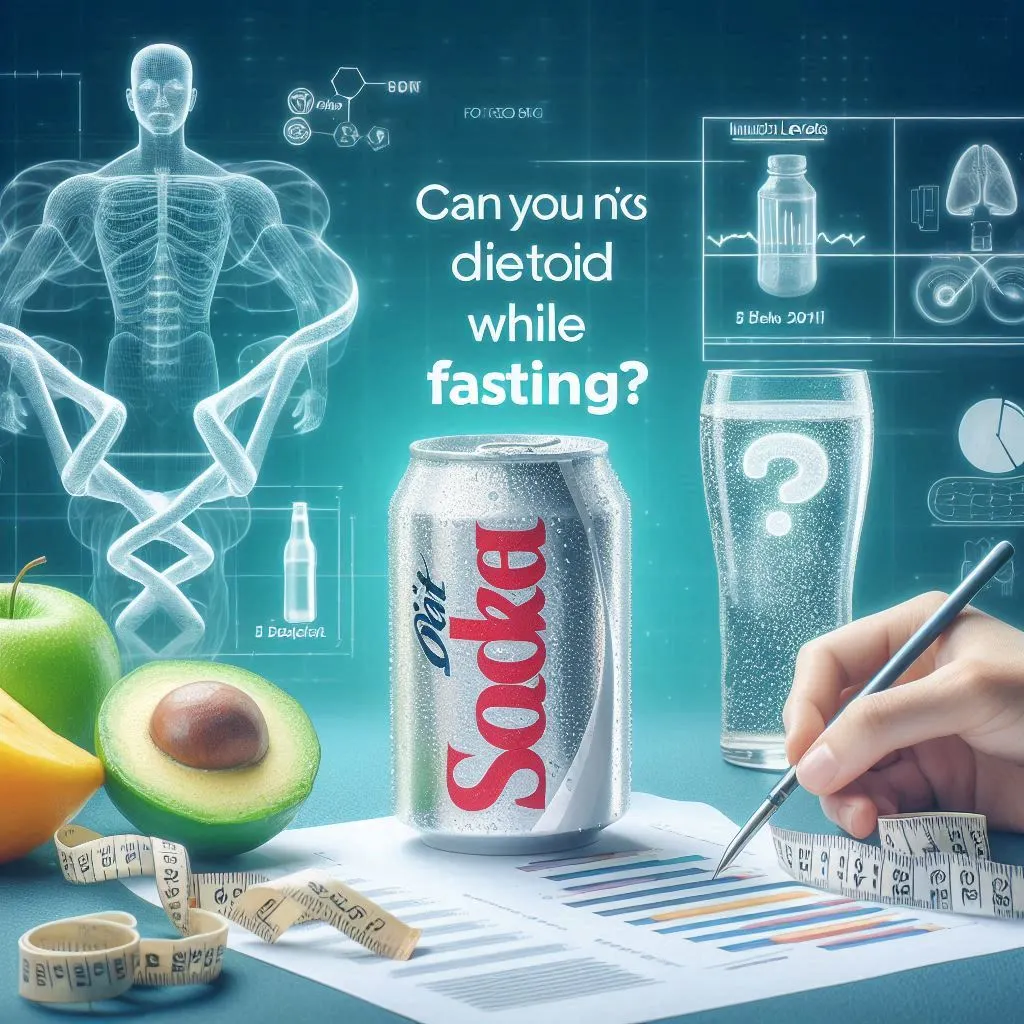
Whether diet soda breaks a fast depends on the type of fast and the reason behind fasting. If the goal is to achieve a state of ketosis or promote autophagy (cellular cleaning), the consumption of diet soda may interfere.
While diet sodas are calorie-free, their artificial sweeteners can still stimulate insulin responses in some people.
This insulin response can break a fast, mainly if the goal is to maintain low insulin levels to promote fat burning.
7. Artificial Sweeteners and Fasting
Artificial sweeteners, such as aspartame, sucralose, and saccharin, are commonly used in diet sodas.
While they don’t contain calories, studies have shown that some artificial sweeteners may still trigger insulin responses. For example, sucralose has been observed to increase insulin levels in certain individuals, potentially negating the benefits of fasting.
The body’s reaction to these sweeteners can vary, making it challenging to determine a one-size-fits-all answer.
8. Insulin Response to Diet Soda
Insulin is a hormone that plays a crucial role in regulating blood sugar levels. When you consume sweet foods or drinks, even if they don’t contain sugar, your body may anticipate a rise in blood sugar and produce insulin in response.
This can disrupt the fasting process, as one of the primary benefits of fasting is to keep insulin levels low to promote fat loss and cellular repair.
Therefore, if diet soda causes an insulin spike, it may break a fast.
9. Potential Benefits of Drinking Diet Soda During Fasting
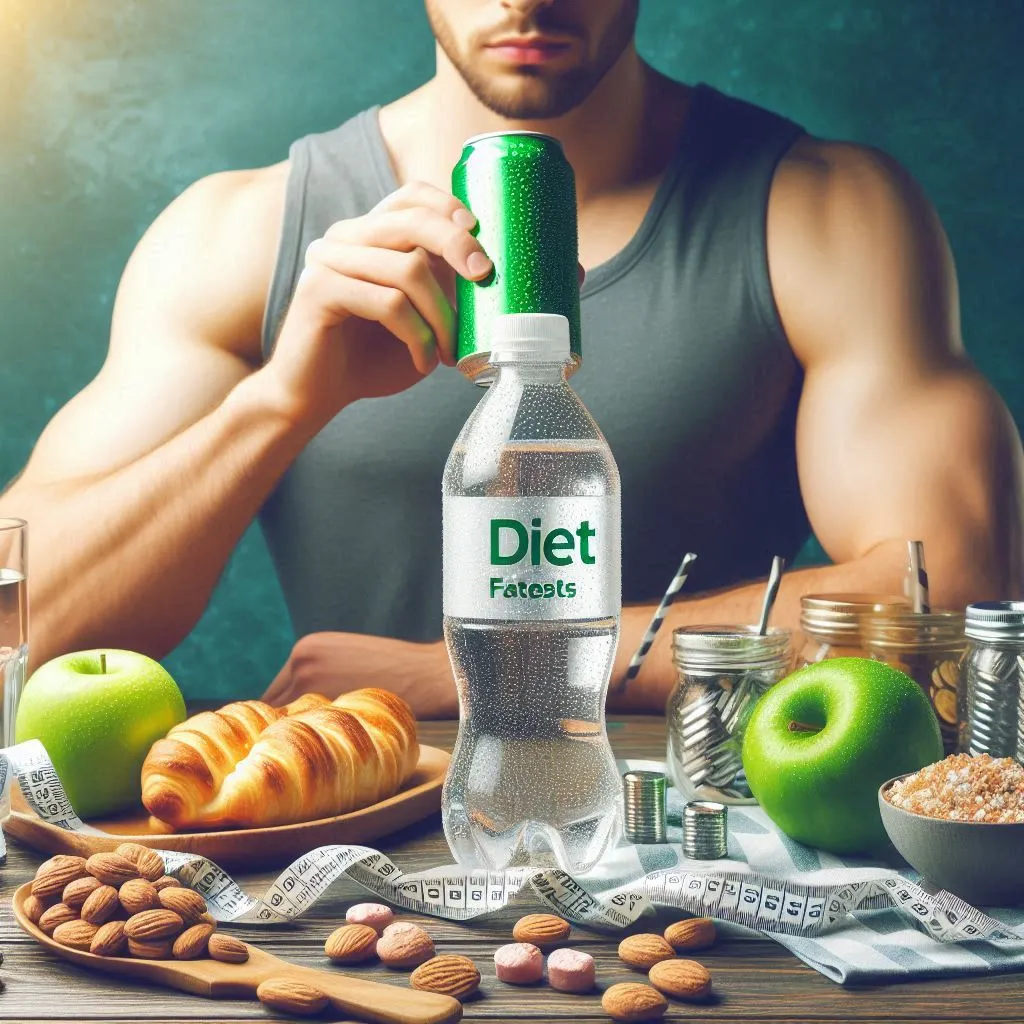
For some people, drinking a diet soda while fasting can have certain perceived benefits:
- Appetite Suppression: The sweetness of diet soda can help curb cravings and reduce hunger pangs during fasting windows.
- Hydration: Staying hydrated is crucial while fasting, and diet sodas, like other beverages, contribute to fluid intake.
- Psychological Comfort: For those new to fasting, drinking something sweet can provide comfort and help them maintain the fast longer.
While these benefits can be appealing, they must be weighed against the potential downsides and fasting goals.
10. Potential Downsides of Drinking Diet Soda During Fasting
Despite the possible benefits, there are several downsides to consider:
- Insulin Resistance: Regular consumption of diet sodas may increase insulin resistance over time, counteracting the benefits of fasting.
- Cravings for Sweets: The artificial sweeteners in diet sodas can trigger cravings for actual sugary foods, making fasting more challenging.
- Health Concerns: Long-term consumption of artificial sweeteners has been linked to potential health issues, including metabolic syndrome, weight gain, and gut microbiota disruption.
For these reasons, many health experts recommend avoiding diet sodas during fasting.
11. Scientific Research on Diet Soda and Fasting
Numerous studies have examined the effects of artificial sweeteners on insulin response, metabolism, and fasting benefits.
While some studies suggest that artificial sweeteners do not significantly impact insulin levels, others indicate they can cause an insulin response in specific individuals. The variability in these findings suggests that more research is needed to draw definitive conclusions.
However, for those who fast for metabolic benefits or autophagy, it might be safer to avoid diet sodas.
Don’t miss: How Much Does a 2 Liter of Soda Cost?
12. Health Expert Opinions on Diet Soda While Fasting
Health experts are divided on whether diet sodas are suitable during fasting. Some nutritionists argue that since diet sodas are calorie-free, they won’t break a fast.
Others caution against them, citing the potential for insulin spikes and other metabolic effects. Renowned fasting experts like Dr. Jason Fung advocate for avoiding all artificially sweetened beverages while fasting to maximise the benefits of the fasting state.
13. Alternatives to Diet Soda During Fasting
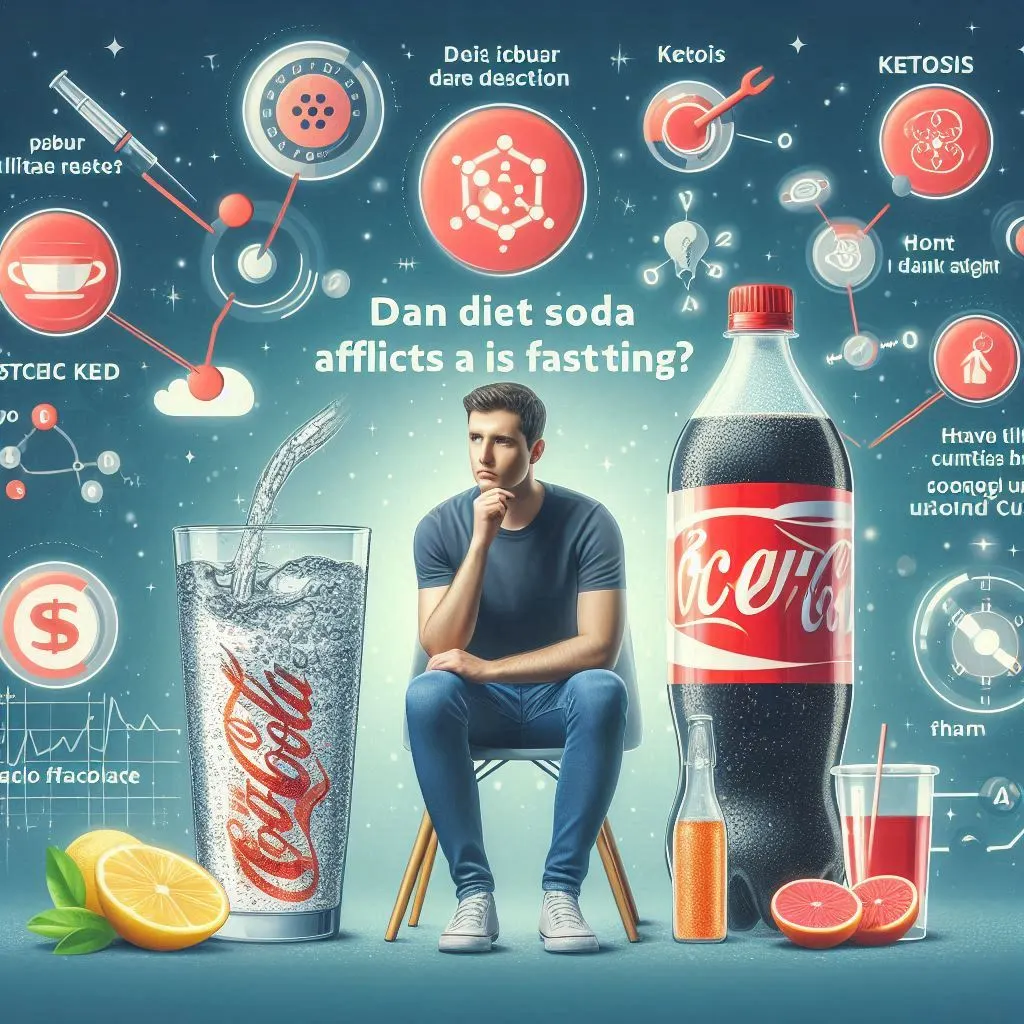
For those who want to avoid diet soda while fasting, several healthier alternatives can be considered:
- Water: The best option for hydration without any risk of breaking a fast.
- Herbal Tea: Naturally caffeine-free and can provide flavour without calories.
- Black Coffee: A popular choice for intermittent fasters, as it may even enhance fat-burning.
- Sparkling Water: Offers a bubbly alternative without the added sweeteners or calories.
Choosing these alternatives ensures that fasting remains effective without potential downsides.
14. FAQs About Diet Soda and Fasting
Q1: Can I drink diet soda during intermittent fasting?
A: It depends on your fasting goals. It’s best to avoid it for weight loss and autophagy.
Q2: Does diet soda affect ketosis?
A: While diet soda doesn’t contain carbs, its sweeteners might trigger an insulin response, potentially affecting ketosis.
Q3: What can I drink while fasting?
A: Water, herbal tea, black coffee, and sometimes plain sparkling water are generally safe.
Q4: Can artificial sweeteners raise insulin?
A: Some studies suggest that artificial sweeteners can cause an insulin response in specific individuals.
Q5: Are there any health risks associated with diet soda?
A: Some research links artificial sweeteners to metabolic issues and cravings, but more studies are needed.
Q6: How do I suppress hunger while fasting?
A: Drinking water, black coffee, and herbal tea can help, as can focusing on activities that distract from hunger.
15. Conclusion
While diet soda is calorie-free and often considered a fasting-friendly beverage, its artificial sweeteners can trigger an insulin response in some people, potentially breaking a fast. If the primary goal of fasting is to promote fat-burning, autophagy, or metabolic health, it may be wiser to avoid diet soda. Opt for alternatives like water, herbal tea, or black coffee to maximise fasting benefits.
